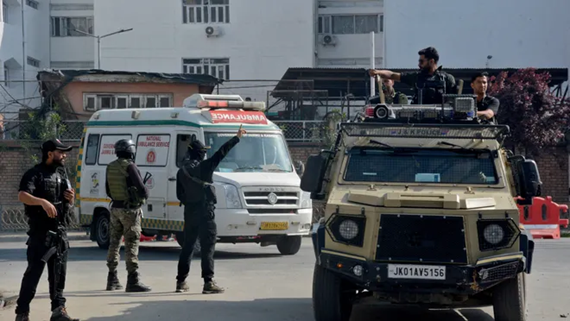Academy SITREP – Tensions Between India and Pakistan Following Attack in Kashmir

What has Happened:
- On April 22nd, 26 people were killed and many others were injured in an attack by suspected Pakistan-based militants in Indian-controlled Kashmir.
- In response, India has commenced a series of actions aimed at Pakistan and its support of terrorist attacks on Indian soil.
- India suspended a crucial river water treaty that allows for sharing the waters of the Indus river system between the two countries, closed a main checkpoint on the border with Pakistan, and downgraded diplomatic ties.
- A little-known group called the Kashmir Resistance took responsibility for the attack, which was the worst attack on civilians in India since the 2008 Mumbai shootings.
- Indian security agencies say Kashmir Resistance, also known as The Resistance Front, is a front for Pakistan-based militant organizations such as Lashkar-e-Taiba and Hizbul Mujahideen.
- India’s defense minister, Rajnath Singh, said that the country had “a zero-tolerance policy toward terrorism” and hinted at the possibility of military strikes.
- In 2019, a militant attack that killed dozens of Indian security personnel resulted in cross-border strikes between the two nuclear-armed nations.
- Following this incident, Modi stripped Kashmir of its semi-autonomous status and dissolved its local democracy to bring it under the direct rule of New Delhi.
Why it Matters:
“Since the group claiming responsibility reportedly has ties to Lashkar-e-Taiba in Pakistan, India will likely respond with some sort of attack into Pakistan. The geographic depth and severity of the response is uncertain. Modi had to return from a scheduled meeting with the Saudi Crown Prince, and VPOTUS was visiting India, both of which increase the likelihood of a serious but still limited response.” – General Rick Waddell
“Modi’s decision on whether to escalate India’s response will be driven by several factors, including the intensity of domestic outrage, past precedent, Modi’s political move to assert control over Kashmir, and Pakistan’s willingness to act. Attacks against tourists in a region that Modi has worked so hard to control are difficult to ignore. The same is true of an attack that coincided with a high-level U.S. visit. Modi is likely to see the timing and civilian targets as a personal affront. This combination strongly suggests that if India determines any complicity from Islamabad, it will seek to escalate its response. This is the deadliest attack in Kashmir since 2019. At that time, India responded to an attack that killed 40 police officers with an airstrike deep inside Pakistan. While there are many rungs on an escalatory response ladder, past precedent sets the tone for domestic expectations. Pakistan will need to offer more than condolences to assuage Indian ire. Even if there is no hard evidence of Islamabad direction, Pakistan will be assumed to be complicit and held responsible by India.” – Linda Weissgold, Former CIA Deputy Director for Analysis
“One significant undercurrent is the relationship between the Pakistani state and the ‘terrorist’ organizations that reside within its territory. While the fingers of blame immediately point to the Pakistani state, the relationship with the most extreme organizations should not be assumed to be under state control. Americans know from our experience in Afghanistan that there is a patchwork of organizations within Pakistan that harbor internal and, at times, external agendas. The ISI, a component of Pakistan’s ‘deep state,’ has a significant ability to tune/control organizations with their own agendas. Many of these episodes cross into Kashmir as the nexus of Hindu/Islamic nationalism. These extra-governmental organizations within Pakistan are more of a liability to Pakistan than a benefit, as they continue to impair the development of a modern Pakistani state with effective governance. While India is in a different strata of maturity in governance, even India has significant internal control challenges among its own radical factions. Moderation is a missing ingredient in the mountainous Kashmir corner of the Indian and Pakistani states. Demographic projections do not portend a cooling of tensions, as both India and (especially) Pakistan have a young and growing demographic. Large youthful populations with limited opportunity create conditions for continued clashes. The nuclear enterprise in each country raises the stakes.” – General Michael Groen


